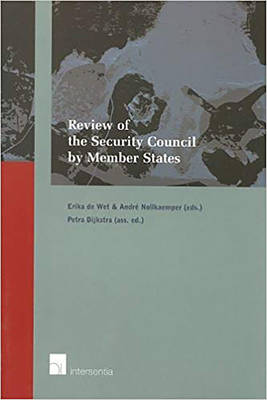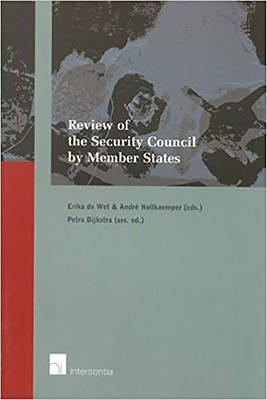
- Afhalen na 1 uur in een winkel met voorraad
- Gratis thuislevering in België vanaf € 30
- Ruim aanbod met 7 miljoen producten
- Afhalen na 1 uur in een winkel met voorraad
- Gratis thuislevering in België vanaf € 30
- Ruim aanbod met 7 miljoen producten
Zoeken
€ 34,00
+ 68 punten
Omschrijving
Recent resolutions of the United Nations Security Council, notably those resulting in the freezing of assets of individuals and organisations suspected of involvement in international terrorism, have had far-reaching consequences for member states and individuals. In addition, they might conflict with international human rights standards that are binding on the Security Council itself. In light of the limited possibility for reviewing the legality of these resolutions on the international level, individuals have recently begun to challenge their implementation on the national and regional level. This emerging practice raises the question whether states and regional organisations such as the EU can engage in such review and, if so, to what extent.
Specificaties
Betrokkenen
- Auteur(s):
- Uitgeverij:
Inhoud
- Aantal bladzijden:
- 160
- Taal:
- Engels
Eigenschappen
- Productcode (EAN):
- 9789050953078
- Verschijningsdatum:
- 25/10/2003
- Uitvoering:
- Paperback
- Formaat:
- Trade paperback (VS)
- Afmetingen:
- 159 mm x 229 mm
- Gewicht:
- 303 g

Alleen bij Standaard Boekhandel
+ 68 punten op je klantenkaart van Standaard Boekhandel
Beoordelingen
We publiceren alleen reviews die voldoen aan de voorwaarden voor reviews. Bekijk onze voorwaarden voor reviews.











